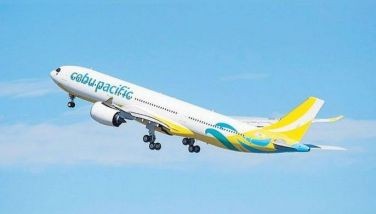Money and politics

Excess campaign funds are so huge, former executive secretary Vic Rodriguez was quoted as saying in his mini biography The Kingmaker, “this can easily bankroll another round of campaign operations.” The book said “the funds had been kept idle at the finance room of Team BBM Headquarters in Mandaluyong.”
BBM supposedly ordered that the funds be kept there rather than brought to his home. “The funds stayed there until October, or about a month after Rodriguez left his post,” the book narrates. “Where these are now, nobody knows for sure.”
What happens to excess campaign funds mostly contributed by business tycoons after the election season ends? This is an interesting question and only the candidates know the answer for sure.
I remember a newly elected president some years ago, supposedly telling friends and media reporters that contributions to his campaign funds continued to flow after the Comelec determined he had won the election. A room in his house was supposedly bursting from floor to ceiling with cash.
That’s just the way our flawed democracy works. The business elites, with much to gain or lose depending on their relationship with the tenant in Malacañang, make sure they are able to buy influence through campaign contributions. Those who failed to contribute or feel they didn’t contribute enough, follow through even after the election.
It is perhaps fair to assume that the top twenty or thirty richest businessmen contribute at the very least, a billion or two to the leading presidential candidate. Then there are the POGOs and assorted gambling kingpins. Those with much at stake on getting favorable government decisions contribute to all candidates that surveys show have a chance of winning.
There are also candidates who run only for the “funds” of it. They know they are not likely to win but they are popular enough to attract political contributions. After the election, they are able to buy a new house in an exclusive location and take the family on a grand vacation abroad.
Strictly speaking, excess campaign funds must be reported for income tax purposes. But the Tax Code itself recognizes that any contribution in cash or in-kind to any candidate, political party, or coalition of parties for campaign purposes shall be governed by the Election Code. And the Omnibus Election Code exempts such donations that are duly reported to the Comelec.
Campaign contributions are not supposed to be for a candidate’s personal expenditures. The condition for the tax exemption of the campaign contribution is that it must be used during the campaign period. If not, it should be subject to the usual taxes imposed on income.
One wonders how this rule is implemented. Laws in this country are mere suggestions, especially if the powerful are involved. Besides, there are more funds contributed anonymously and in untraceable cash. It is possible left-over contributions, reported to Comelec or not, become tax-free bonanza for the candidates.
Using excess contributions to satisfy the constant requests for financial assistance by constituents can be a justification for keeping those. It is also a way to redistribute the wealth of campaign fund contributors to those at the bottom of our social pyramid who need help for medical attention and other emergencies.
At the local level, it is more than just about campaign funds. Money and politics revolve around the ruling political dynasty. There is a strong relationship between who reigns at City Hall and who gets a share of construction and other business deals that require the mayor’s approval. A number of studies by the Ateneo School of Government led by Dr. Ronald Mendoza has documented such relationships.
For instance, businesses owned by politicians are usually in construction, accommodation and food services, wholesale retail and trade and real estate. The lack of transparency and accountability in the bidding process can make these industries attractive business ventures for local politicians.
“As stated by one of our respondents, ownership over these business ventures is a ‘win-win situation for politicians.’ Local politicians have discretion over the awarding of government contracts and business permits and are the first to know of other promising business opportunities in the province…
“In addition, business ownership benefits politicians as they earn clout from their business’ success and they secure patronage networks through their ability to provide jobs and disaster relief for locals…
“To maintain political power, political dynasties would need a constant stream of income to fund clientele ties with the people and investments for the province. These circumstances, along with inherent political instability in key areas outside Luzon, create a permissive environment for predatory political dynasties.”
Businesses at the local level, specially in non-Luzon provinces, are in an unholy alliance with political dynasties.
“While businesses can exert enough pressure on politicians in Luzon to keep the pie growing, we also find no evidence that shares to this economic pie are distributed appropriately and that the poor benefit. Poverty remains unchanged…”
No wonder after almost 40 years since the Constitution called for the passage of a law to deal with political dynasties, Congress has simply ignored the mandate. The Supreme Court said last month the inability of Congress to pass an enabling law to implement the ban “constitutes grave abuse of discretion, is unconstitutional and represents a continuing violation of the Constitution.”
The Court said it has issued a writ of certiorari for Congress to comply with its constitutional mandate to pass a law defining political dynasties. The Court said the time had come to end the “continuing violation of the Constitution.”
We are not holding our breath that Congress will comply.
The destructive convergence of money and politics keeps our people poor and our society inequitable and unjust. The poor reaffirm this dreadful but winning formula every election. That’s Philippine democracy in action. The very rich and the very poor are working together to ensure our democracy’s eventual demise.
Boo Chanco’s email address is [email protected]. Follow him on X @boochanco
- Latest
- Trending




























